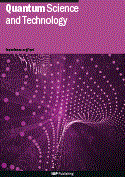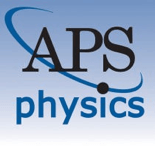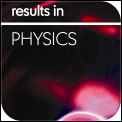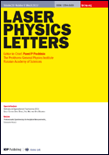
Quantum Science and Technology
Scope & Guideline
Pioneering the Future of Quantum Innovation
Introduction
Aims and Scopes
- Quantum Information Science:
Research centered on the principles and applications of quantum information, including quantum computing, quantum cryptography, and quantum communication. This encompasses both theoretical frameworks and experimental implementations. - Quantum Metrology and Sensing:
Studies aimed at enhancing measurement precision using quantum mechanical principles. This includes the development of quantum sensors and techniques for improving measurement accuracy in various applications. - Quantum Materials and Devices:
Exploration of new materials and technological advancements that exploit quantum mechanics for practical applications, such as quantum dots, superconductors, and novel photonic devices. - Quantum Algorithms and Computational Techniques:
Development and analysis of quantum algorithms for solving complex problems, including optimization, simulation, and machine learning, often leveraging the unique properties of quantum systems. - Quantum Dynamics and Control:
Investigating the dynamics of quantum systems and the control mechanisms that can be employed to manipulate these systems effectively for various applications.
Trending and Emerging
- Quantum Machine Learning:
The integration of quantum computing with machine learning techniques is increasingly popular, reflecting the potential for quantum algorithms to outperform classical counterparts in data processing and analysis. - Quantum Cryptography Advances:
Innovations in quantum key distribution and secure communication protocols are on the rise, showcasing the growing importance of security in quantum technologies and the development of practical applications. - Entanglement and Nonlocality Studies:
Research focusing on entanglement and its applications in quantum networking and communication is trending, indicating a shift towards exploring the implications of these phenomena for future technologies. - Quantum Error Correction and Fault Tolerance:
The development of techniques for error correction and fault-tolerant quantum computing is gaining momentum, driven by the need for reliable quantum systems in practical applications. - Hybrid Quantum-Classical Systems:
The exploration of systems that blend quantum and classical computing methods is emerging, reflecting a pragmatic approach to harnessing the strengths of both paradigms for complex problem-solving.
Declining or Waning
- Classical Quantum Comparisons:
Research comparing classical and quantum systems has become less frequent, possibly due to the maturation of quantum technologies, leading to more focused studies on quantum-specific applications rather than comparisons. - Basic Quantum Theory:
Papers solely dedicated to foundational aspects of quantum mechanics are less common, reflecting a trend towards applied research that addresses practical problems and advanced technologies. - Quantum Biology:
While still an interesting field, studies specifically exploring quantum effects in biological systems appear to have decreased, as researchers may be focusing more on direct technological applications of quantum science.
Similar Journals

Physical Review Applied
Illuminating the Path of Applied Physics DiscoveriesPhysical Review Applied is a prestigious journal published by the American Physical Society that serves as a vital platform for researchers in the field of applied physics. With an esteemed Q1 ranking in the Physics and Astronomy category and a commendable Scopus rank of #35 out of 243, this journal represents a significant milestone in disseminating cutting-edge research. Established in 2014, it focuses on the latest advancements and applications in various realms of physics, promoting interdisciplinary collaboration and innovation. Although not an open-access journal, Physical Review Applied offers a range of access options for readers and institutions, ensuring that high-impact research remains widely available. Researchers, professionals, and students alike will find this journal an essential resource for staying at the forefront of applied physics developments.

PHYSICAL REVIEW LETTERS
Connecting Researchers with Cutting-Edge DiscoveriesPhysical Review Letters, published by the American Physical Society, is a premier journal in the field of Physics and Astronomy renowned for its rapid dissemination of high-impact research findings. With a distinguished history dating back to 1958 and an impressive ranking of #13 out of 243 in the general physics category, it stands proudly within the Q1 quartile, placing it in the top 6% of journals in its field. The journal focuses on brief reports of significant fundamental research across all areas of physics, making it an essential resource for researchers, professionals, and students seeking to stay at the forefront of developments in their field. Although Physical Review Letters does not offer open access options, its rigorous peer-review process ensures a high standard of quality and relevance in its published articles. With an unwavering commitment to advancing the understanding of physical science, this journal is indispensable for those looking to make a genuine impact in their research endeavors.

Frontiers of Physics
Transforming Theoretical Insights into Practical AdvancementsFrontiers of Physics, published by Higher Education Press, is a premier open-access journal dedicated to fostering innovative research and excellence within the field of physics. With an ISSN of 2095-0462 and an E-ISSN of 2095-0470, this rapidly growing journal has established itself as a valuable platform for disseminating cutting-edge findings, covering a diverse range of topics from theoretical frameworks to experimental advancements. Notably, Frontiers of Physics has achieved an impressive Q1 ranking in the 2023 Scopus Quartiles for Physics and Astronomy, securing a competitive 5th out of 81 positions in its category, reflecting a high impact factor that underscores its importance to the scientific community. Since its inception in 2011 and continuing through 2024, the journal aims to bridge the gap between academia and industry, encouraging collaboration among researchers, professionals, and students alike. Its commitment to open access ensures that high-quality research is readily accessible, thereby promoting knowledge sharing and advancement in the global physics community. Explore the potential of your research in Frontiers of Physics, where the future of physics flourishes.

Science China-Physics Mechanics & Astronomy
Pioneering Research in Fundamental and Applied PhysicsScience China-Physics Mechanics & Astronomy, published by SCIENCE PRESS, stands as a prestigious journal within the Physics and Astronomy domain, particularly recognized for its contributions to the understanding of fundamental and applied physics. With an exhilarating Q1 ranking in the 2023 category and earning a remarkable scopus rank of #21 out of 243, the journal demonstrates its significant impact, being positioned in the 91st percentile of its field. Operating under an Open Access model, it facilitates the broad dissemination of high-quality research, ensuring accessibility for researchers, professionals, and students worldwide. Its scope covers a variety of essential topics in physics and astronomy, promoting a comprehensive understanding of the latest advancements from 2010 through 2024. The journal is a vital resource for anyone aiming to stay at the forefront of research in these dynamic fields, with its prominent address located in Beijing, China, symbolizing its global influence.

PHYSICAL REVIEW A
Unveiling Innovations in Atomic SciencePHYSICAL REVIEW A, published by the American Physical Society, is a leading journal in the field of Atomic and Molecular Physics and Optics, boasting a Q1 category ranking in its area for 2023. With an ISSN of 2469-9926 and an E-ISSN of 2469-9934, this journal plays a pivotal role in disseminating high-quality research findings, theories, and methodologies that shape current understanding and advancements in the discipline. Although not an open-access journal, it remains highly accessible to professionals and academia through institutional subscriptions. The journal's impactful contributions are evident from its Scopus rank of #70 out of 224 in the field, placing it in the 68th percentile for scholarly impact. As a hub of innovative research and a vital resource for both students and seasoned researchers alike, PHYSICAL REVIEW A remains essential for those seeking to stay abreast of breakthroughs in atomic and molecular studies, as well as optics and photonics.

Results in Physics
Unlocking the Secrets of the Universe, One Result at a TimeResults in Physics, an esteemed open-access journal published by ELSEVIER, has been a prominent platform for disseminating cutting-edge research in the field of physics since its establishment in 2011. With its ISSN 2211-3797 and E-ISSN 2211-3797, this journal proudly holds a Q2 ranking in the Physics and Astronomy category for 2023, showcasing its significance and quality within the scientific community. With a remarkable Scopus rank of #28 out of 243 in the general physics and astronomy domain, placing it within the 88th percentile, Results in Physics serves as a vital resource for researchers, professionals, and students alike, fostering a collaborative environment for the advancement of knowledge across various subfields. The journal aims to provide a rapid and unrestricted access to innovative findings, encouraging open scientific dialogue and enhancing the visibility of breakthrough research. Located in the Netherlands at RADARWEG 29, 1043 NX AMSTERDAM, Results in Physics continues to uphold its commitment to excellence and accessibility in the ever-evolving landscape of physics research.

Advanced Quantum Technologies
Pioneering Insights in Quantum Mechanics and TechnologyAdvanced Quantum Technologies is a leading journal published by WILEY, specializing in the rapidly evolving fields of quantum mechanics and technology. With an impact factor reflecting its rigorous peer-review process and high-quality research, this journal aims to disseminate the latest advancements across multiple disciplines, including Computational Theory and Mathematics, Condensed Matter Physics, and Electrical and Electronic Engineering. Since its inception in 2018, it has garnered a prominent reputation, as evidenced by its Q1 ranking in several categories for 2023 and its high percentiles in Scopus rankings, showcasing its significant contributions to the academic community. Researchers and professionals alike will find valuable insights within its pages, promoting innovations that bridge theoretical frameworks and practical applications. Although currently not an Open Access journal, Advanced Quantum Technologies continues to strive for excellence, ensuring that its content is accessible and impactful to those who are shaping the future of quantum technologies.

LASER PHYSICS LETTERS
Navigating the Frontiers of Laser PhysicsLASER PHYSICS LETTERS is a prestigious peer-reviewed journal published by IOP Publishing Ltd in the United Kingdom, focusing on the burgeoning field of laser physics and its applications. With an ISSN of 1612-2011 and an E-ISSN of 1612-202X, this journal stands at the intersection of innovative research and practical applications, addressing diverse topics within the realms of Instrumentation and Physics and Astronomy. Recognized for its impactful contributions, it boasts a ranking within the Q3 quartile for both relevant categories as of 2023, reflecting its steady rise and commitment to advancing knowledge in the area. Researchers and practitioners are encouraged to explore its content and contribute to the ongoing discourse that shapes the future of laser technologies. While LASER PHYSICS LETTERS does not currently offer open access options, its rigorous selection criteria ensure that published work is of the highest quality, positioning it as a vital resource for anyone engaged in laser science and engineering.

INTERNATIONAL JOURNAL OF THEORETICAL PHYSICS
Exploring the Frontiers of Theoretical PhysicsInternational Journal of Theoretical Physics is a premier academic journal dedicated to the advancement of knowledge in the fields of theoretical physics and mathematics. Published by Springer/Plenum Publishers, this esteemed journal has been a vital platform for researchers since its inception in 1968. With an impressive track record and an emphasis on high-quality, innovative research, the journal currently ranks in the third quartile (Q3) in both the Mathematics (Miscellaneous) and Physics and Astronomy (Miscellaneous) categories as of 2023. While the journal is not open access, it offers accessible subscription options for institutions and individuals. The International Journal of Theoretical Physics serves as an essential resource for scholars and practitioners looking to deepen their understanding and contribute to the evolving landscape of theoretical research, making it a key player in nurturing academic discourse and fostering collaboration in its field.

JOURNAL OF EXPERIMENTAL AND THEORETICAL PHYSICS
Fostering Intellectual Discourse in Experimental and Theoretical PhysicsJournal of Experimental and Theoretical Physics is a distinguished publication in the field of physics, dedicated to disseminating pioneering research and fostering intellectual discourse in both experimental and theoretical domains. Published by Pleiades Publishing Inc, this journal has established itself as a crucial platform for physicists, with a commendable Q3 categorization in the 2023 rankings within Physics and Astronomy, illustrating its impactful contributions to the discipline. The journal features a wide array of articles that delve into the intricacies of physical theory, experimental techniques, and applications, making it an invaluable resource for researchers, professionals, and students alike. Although it operates under a traditional access model, its longstanding history, dating back to 1980 and converging years through to 2023, underscores its commitment to advancing the frontiers of physics knowledge. The journal is also notable for its engagement in the scientific community, aiming to bridge the gap between theoretical predictions and experimental validations. As a part of Pleiades Publishing, it continues to uphold rigorous standards of academic excellence, inviting contributions that push the boundaries of current understanding and stimulate further exploration in the fascinating world of physics.